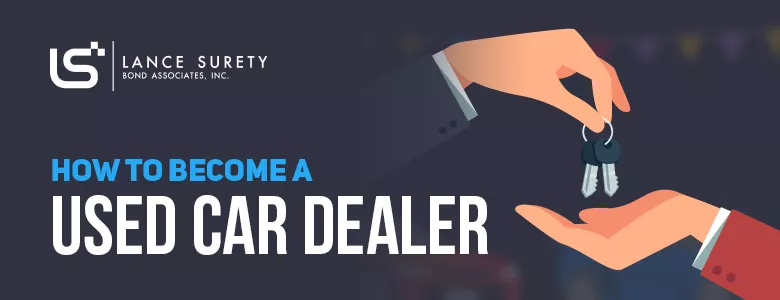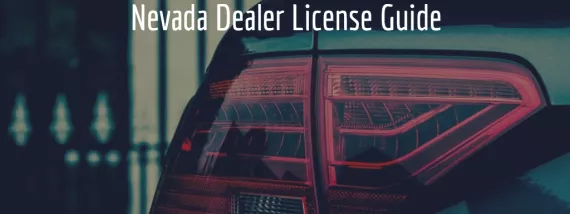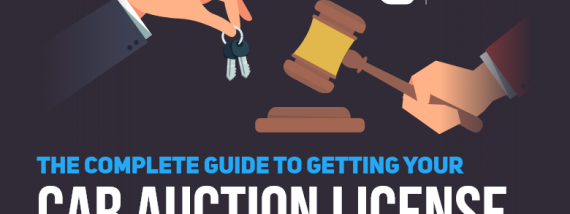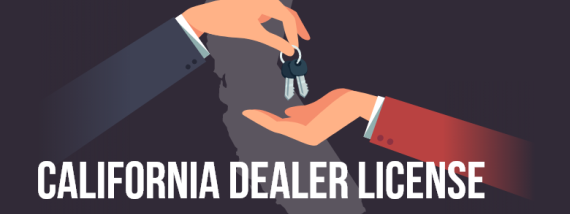How to Become a Used Car Dealer

Opening a dealership can be a very lucrative and rewarding decision. Of course, as any entrepreneurial undertaking, it will require you to face a number of important decisions and challenges. When deciding to open a dealership, one of the central choices you need to make is whether to sell new vehicles or used ones.
Selling new vehicles can be more profitable in the long run. Yet, it is also harder due to the greater financing required to even launch the dealership. And while profits may not be as high for used dealers, being a used dealer allows for greater flexibility and significantly lower startup costs.
As with most other businesses, to open a used dealership you will need to register your business in your state. You will also need to apply for a dealer license at your local licensing authority. This will entail that you complete licensing requirements such as to find an appropriate dealership location, post an auto dealer bond, and more. Finally, you will also need to secure financing for your dealership, and obtain cars for your lot.
Thinking about opening your own dealership? Keep reading to learn about how to become a used car dealer!
Download our FREE e-book guide for even more information about how to open your own dealership!
How to Become a Used Car Dealer
1. Create a business plan
Preparation is key in launching your dealership. So, before you set out to register a business, you need to do some planning. A business plan will help you think about how you will manage, operate, market, and finance your dealership.
These are important questions to ask yourself in advance and may save you a lot of time and money later on. Moreover, if you plan on applying for a loan to finance your business, lenders and investors will expect you to present a detailed business plan.
2. Register your business
Before you can launch your dealership, you will need to register it as a business in your state.
This will typically be done at your state business licensing authority or with your Secretary of State. Most states will require you to provide basic personal information, an EIN number from the IRS (if you intend to have employees) and, possibly, things like a state, county or city tax ID number.
3. Obtain a used car dealer license
All states require dealers to be licensed at their Department of Motor Vehicles (DMV) before they can operate. The licensing process varies from one state to another. Typically, dealers need to secure a location with an office and display space that complies with various requirements.
Other states also require applicants to pass a dealer education course and exam, to post a surety bond, obtain insurance coverage, pass a criminal background check, and more.
See our guide on how to get a used dealer license for a breakdown of the various requirements you may need to comply with when applying for a license.
4. Comply with state and federal laws
Compliance with state and federal laws is essential if you want to run your dealership smoothly and successfully. State laws differ in their requirements for dealers, so you must make sure to carefully study them. Often your state DMV will provide comprehensive guidelines on its website about the rules and provisions which you need to follow.
There are also a number of laws on a federal level which you need to be familiar with. These include the Used Car Rule, the Credit Practices Rule, the Privacy Rule, and a host of other laws. Often, auto dealer associations such as NADA will provide training to dealers to familiarize them with the contents of such laws, and help them stay compliant.
5. Obtain cars for your lot
Of course, to run a dealership, you will need to obtain cars. Unlike new vehicle dealers, used vehicle dealers do not obtain their cars from manufacturers. Instead, used dealers will obtain their cars from any of the following sellers:
- New dealers who have used car trade-ins
- Wholesale dealers
- Auction dealers
- Private individuals
- Others
These are some of the ways in which used dealers find cars for their lot.
How Do Used Car Dealerships Operate?
What are the day-to-day activities at a dealership?
Operating a dealership on a daily basis typically entails conducting meetings with potential customers and negotiating. Along with that, a dealership is also a good deal of paperwork as well as, if you have employees, purely managerial tasks like delegating tasks and responsibilities.
In order to keep the business running, you will need to regularly scout out and vet vehicles which you might purchase. Marketing your dealership is yet another important task you must tend to in order to bring in new customers. Referrals are a particularly important business driver for used car dealers and so the better you serve your customers, the more business you may expect to get.
How do used car dealers make a profit?
Of course, the main way for used car dealers to make a profit is through the sale of cars. Dealers will usually obtain vehicles through a number of channels. Sometimes they may even buy broken down cars that are in need of repair. They will assume the cost of fixing such cars, after which they will sell them at a higher price than they obtained them for.
Profits on used vehicles are lower than on new cars. For this reason, many dealers will often open a Service and Parts department where they will conduct vehicle maintenance and repairs. Sometimes such a department may even bring the larger portion of profits but this will, of course, differ from one dealer to the next.
Used Car Dealer Surety Bond Requirement
Why do dealers require a surety bond?
Dealers need a surety bond to get licensed. This surety bond is a guarantee that in conducting business the dealer will comply with state laws. The bond guarantees they will conduct business honestly and fairly.
If a dealer commits fraud or in some other fashion causes harms or losses to the public or the state they operate in, the bond also provides protection. Those harmed by a dealer's actions can bring a claim against the bond to request compensation. The surety that backs the bond will then investigate the issue, and may extend compensation up to the full amount of the bond.
Ultimately though, it is the dealer who is liable for any claims made against the bond. So, if the surety extends compensation, the bonded dealer must reimburse the surety in full.
What's the cost of getting bonded?
The cost of a surety bond is a fraction of the full amount of the bond required in your state. The surety that issues the bond examines applicants' credit score as well as other financial factors to determine the rate at which it can bond them.
Applicants with good credit, above 700 FICO, typically get the lowest rates on their bonds. Such applicants can get bonded for as low as 1% of the total bond amount or even lower in certain cases.
Get an estimate of the cost of your bond through our bond calculator below!
Surety bond cost calculator
Download Our Free E-book for More!
Get our 45+ pages e-book today for even more information about how to start your own dealership. Our e-book also includes:
- Dealer industry trends for the next few years
- A more detailed list of the cost factors you need to consider
- More about the registration and licensing requirements
- Ideas financing your dealership
- An extensive table with basic licensing requirements for dealers in all states
- And more...
- Fast and Secure Application
- Nationwide Coverage
- Approval in Minutes
- Money Back Guarantee
Recommended Articles
- Fast and Secure Application
- Nationwide Coverage
- Approval in Minutes
- Money Back Guarantee
- Image

- Image

- Image

Lance Surety Bond Associates, Inc. is a surety bond agency based out of southeastern Pennsylvania that is able to write all surety bond types in all 50 states. We are dedicated to servicing all of our customers' surety bonding needs throughout the country and guarantee competitive rates, timely responses, and unparalleled customer service.








